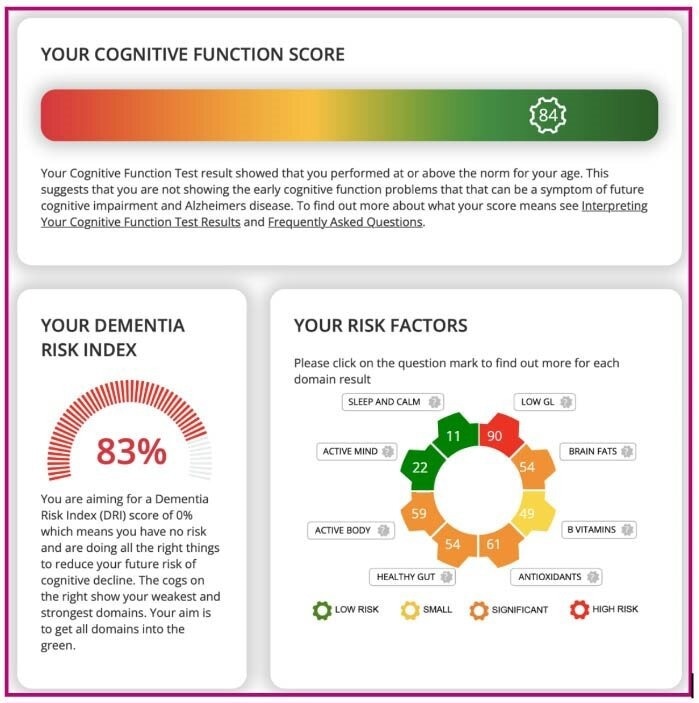Everyone knows that vitamin D is vital for healthy bones and a stronger immune system but could low levels be a major driver of Alzheimer’s and age-related cognitive decline?

Image Credit: Food for the Brain Foundation
New research suggests that the levels of vitamin D commonly found in the UK are accelerating cognitive decline and increasing the risk of a dementia diagnosis and that supplementing with vitamin D, especially in the winter, can reduce future dementia risk.
Vitamin D deficiency is well known to increase future risk of Alzheimer’s disease. In a study in France those with low vitamin D levels, below 50 nmol/L, had a nearly three-fold increased risk of Alzheimer’s. Over sixty per cent of people in the UK have lower levels than this.
Supplements also help ward off dementia, according to a large-scale study earlier this year involving over twelve thousand dementia-free 70+ year olds. More than a third (37%) took supplements of vitamin D and those that did had a 40% lower incidence of dementia.
Professor Zahinoor Ismail, of the University of Calgary and the University of Exeter, who led the research, said: “We know that vitamin D has some effects in the brain that could have implications for reducing dementia. Overall, we found evidence to suggest that earlier supplementation might be particularly beneficial, before the onset of cognitive decline.”
Vitamin D expert Dr William Grant (PhD) advisor to the prevention charity foodforthebrain.org, says we’ve vastly under-estimated the importance of vitamin D on the brain and how much you need.
All the evidence regarding cardiometabolic diseases, cancer, diabetes, infectious diseases and pregnancy outcomes shows that you need a blood level of vitamin D above 75 nmol/L to be healthy, and the same is proving true for the brain. This optimal level is impossible to achieve without supplementation in the winter. I recommend every adult and teenager supplements themselves with at least 1000 to 3000iu per day from October to March in line with a recent review by 35 vitamin D researchers. The degree of obesity, darker skin colour and living further North increases need. The UK government’s recommendation of 400iu (10 mcg) a day is not enough for optimal brain health. Supplementing 800 iu (20 mcg) a day for 12 months has already been shown to improve cognitive function, but you need more than this to achieve anything close to an optimal level.” says Dr Grant.
Dr William Grant (PhD), Vitamin D expert
“If you’re not supplementing with vitamin D in the winter then you may well be heading for cognitive decline.” However, only 8 per cent of UK adults take vitamin D in the winter, says the British Nutrition Foundation.
Under the direction of Dr Grant, foodforthebrain.org has launched a research project to test blood vitamin D levels using a home test kit, and cognitive function with a free online Cognitive Function Test. The aim is, having already tested over 400,000 people’s cognitive function, to now measure their vitamin D levels. This will help to establish the vitamin D level you really need in order to stay free from dementia, says Dr Grant who is director of the Sunlight, Nutrition and Health Research Center in San Francisco.
If you’d like to take part in this research and discover your vitamin D level and cognitive function visit foodforthebrain.org/vitaminD project. The free online Cognitive Function Test also works out what is driving your future dementia risk generally (that is, other than vitamin D) and gives you advice on what to do to reduce your risk. The free test is available at foodforthebrain.org.